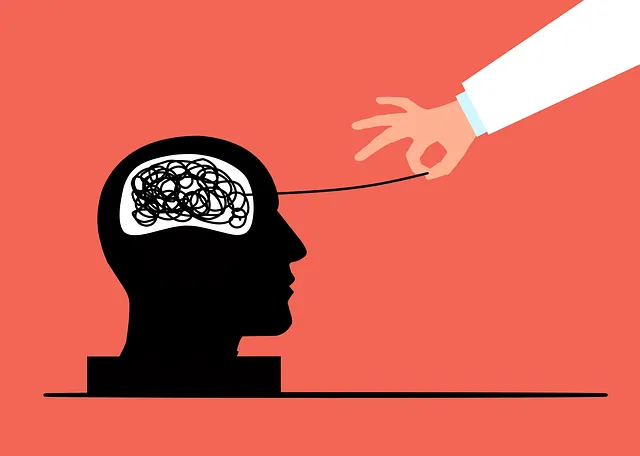Crisis Intervention Teams (CITs), a key component of Superior Kaiser Permanente mental health services, offer immediate support to individuals in severe emotional distress or suicidal ideation through trained professionals. Their effectiveness lies in community connection fostering and mental health awareness promotion via de-escalation techniques and mindfulness meditation. Superior Kaiser Permanente's CIT training emphasizes resilience building, empathy for diverse populations, and self-esteem improvement, combining theoretical knowledge with hands-on experiences to prepare competent, compassionate crisis responders. These programs empower individuals with skills to address emotional crises, reduce stigma, promote early intervention, and enhance overall well-being, ultimately strengthening community resilience.
“In today’s complex landscape, effective crisis intervention teams (CITs) are a vital resource for delivering superior Kaiser Permanente mental health care. This article explores the critical role of these teams in managing and preventing crises, focusing on real-world applications. We delve into the key components of comprehensive training programs, highlighting their impact on community wellbeing. By examining best practices from organizations like Kaiser Permanente, professionals can be better prepared to handle diverse scenarios, ensuring a more responsive and effective mental health support system.”
- Understanding Crisis Intervention Teams: A Vital Resource for Mental Health Care
- The Role of Kaiser Permanente in Mentally Health Support
- Components of Effective Crisis Intervention Training Programs
- Benefits and Impact on Community Wellbeing
- Preparing Professionals: Skills and Techniques for Real-World Scenarios
Understanding Crisis Intervention Teams: A Vital Resource for Mental Health Care

Crisis Intervention Teams (CITs) are a vital resource within the mental health care landscape, offering specialized support during moments of crisis. These teams typically consist of trained professionals from various disciplines, including psychology, social work, and psychiatry, who collaborate to provide immediate assistance to individuals experiencing severe emotional distress or suicidal ideation. By integrating Superior Kaiser Permanente mental health services, CITs ensure that those in need receive comprehensive care tailored to their unique circumstances.
The effectiveness of CITs lies in their ability to foster strong community connections and enhance Mental Health Awareness. Through Social Skills Training and Mindfulness Meditation practices, team members learn to de-escalate high-risk situations while promoting healthy coping strategies. This proactive approach not only prevents further escalation but also empowers individuals to better manage future crises, ultimately contributing to improved long-term mental health outcomes.
The Role of Kaiser Permanente in Mentally Health Support

Kaiser Permanente has emerged as a leading force in providing comprehensive mental health support, playing a pivotal role in crisis intervention team training programs. Their dedication to superior Kaiser Permanente mental health services is evident through various initiatives and resources they offer. The organization understands the urgency of addressing mental wellness and has implemented robust strategies to ensure professionals are well-equipped to handle crises effectively.
In addition to their direct service provision, Kaiser Permanente actively involves itself in Mental Health Policy Analysis and Advocacy, shaping broader systems to better support individuals’ mental wellness. They also promote Risk Management Planning for Mental Health Professionals, ensuring safe and effective practice environments. Furthermore, they offer valuable guidance on Mental Wellness Journaling Exercises, encouraging self-care and reflection among team members, which is essential for sustained crisis intervention capabilities.
Components of Effective Crisis Intervention Training Programs

Effective crisis intervention team training programs are meticulously designed to equip healthcare professionals with the necessary tools and skills to handle critical situations. These programs should encompass a comprehensive range of components, including but not limited to, practical simulations, role-playing exercises, and evidence-based techniques. Superior Kaiser Permanente mental health training often emphasizes the importance of resilience building, fostering an environment where team members can safely practice responding to various crises.
The curriculum should also delve into empathy building strategies, promoting a deep understanding of diverse patient populations and their unique needs. Moreover, self-esteem improvement techniques are integral to ensure that intervention team members enhance their own emotional well-being while supporting others. Through a combination of theoretical knowledge and hands-on experiences, these training programs aim to cultivate competent and compassionate crisis responders, ultimately improving patient outcomes in high-pressure settings.
Benefits and Impact on Community Wellbeing

Crisis intervention team training programs offer significant benefits to communities by empowering individuals with the skills to respond effectively during times of distress. These initiatives, often led by organizations like Superior Kaiser Permanente, focus on mental health awareness and resilience building. By equipping community members with Mind Over Matter Principles, including Mindfulness Meditation techniques, participants gain the confidence to support those facing emotional crises.
The impact extends beyond individual lives; it contributes to a healthier, more resilient community. Training programs foster an environment where individuals feel comfortable discussing mental health issues, reducing stigma and promoting early intervention. This proactive approach not only improves overall wellbeing but also ensures that at-risk individuals receive the necessary support before situations escalate. Such initiatives are pivotal in building a supportive network that can mitigate the impact of crises and enhance community resilience.
Preparing Professionals: Skills and Techniques for Real-World Scenarios

Preparing professionals for crisis intervention involves equipping them with a robust skill set tailored to real-world scenarios. The programs focus on enhancing emotional intelligence, enabling practitioners to connect and understand individuals in distress effectively. This includes mastering active listening, empathy, and non-verbal communication skills, which are crucial when interacting with people facing mental health challenges.
In addition, these training programs introduce evidence-based techniques like mindfulness meditation and self-esteem improvement strategies, proven to promote emotional well-being. The integration of such practices ensures professionals can offer immediate support while fostering long-term resilience in individuals facing crises. At Superior Kaiser Permanente, for instance, mental health crisis intervention team members are trained to apply these skills in diverse settings, ultimately enhancing their ability to make a positive and lasting impact.
Crisis intervention team (CIT) training programs are a game-changer in enhancing community wellbeing. As highlighted, these programs, particularly those backed by superior Kaiser Permanente mental health resources, equip professionals with essential skills to handle real-world crisis scenarios effectively. By focusing on understanding CITs, their roles, and effective training components, we can foster a more resilient and supportive society. The benefits are clear: improved mental healthcare access and outcomes for community members in need.






